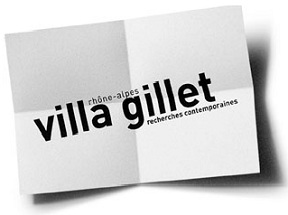Nicholson Baker on his literary career and how he came to write about sex
![[title-image]1332154738575[/title-image] baker-2-c-margaret-brentano_1339598559099.jpg](https://cle.ens-lyon.fr/anglais/images/baker-2-c-margaret-brentano_1339598559099.jpg) Nicholson Baker (born January 7, 1957) is a contemporary American writer of fiction and non-fiction. As a novelist, he often focuses on minute inspection of his characters' and narrators' stream of consciousness, and has written about poetry, literature, library systems, history, politics, time manipulation, youth and sex. His fiction generally de-emphasizes narrative in favor of careful description and characterization.
Nicholson Baker (born January 7, 1957) is a contemporary American writer of fiction and non-fiction. As a novelist, he often focuses on minute inspection of his characters' and narrators' stream of consciousness, and has written about poetry, literature, library systems, history, politics, time manipulation, youth and sex. His fiction generally de-emphasizes narrative in favor of careful description and characterization.
Les éditions Christian Bourgois publieront en novembre 2012 un recueil en français des textes écrits à l'occasion des assises du roman.
I think the job of the novelist is to write about interesting things, including things that might not seem all that interesting at first glance – like, say, a lunch hour on an ordinary weekday – and to offer evidence that life is worth living. At least, that’s what I try to do – not always successfully. My first book was about a lunch hour – the second about sitting in a rocking chair holding a baby – the third about literary ambition. There was almost no sex in those three books. But I always wanted to be a pornographer – because after all sex is amazing and irrational and embarrassing and endlessly worth thinking about. My fourth book was called Vox, and it was about two strangers telling stories to each other on the phone. I decided to write it as one big sex scene, because if you’re going to do it, do it.
I’ll tell you how I came to write it. One summer, in 1990, I took an intensive Latin class in Berkeley California. In it I had to study Latin prose all day along. It was fun for a while, in a way, and then it became not so fun, in fact nightmarish – too many rules that elevated idioms into laws of grammar – and one afternoon I was sitting in the cafeteria at Berkeley looking at people serve hamburgers, and I heard the murmur of their voices and I thought, My god, I know how to speak English! I don’t know Latin slang, and I’ll never know Latin slang, but I do know English slang. I felt hugely relieved that I had a language that I was at home in, and I thought, I really have to write a novel in dialogue – a novel that’s nothing but talking on the phone – so that the two characters, a man and a woman, have to entertain each other and become real and trustworthy to each other using only their voices.
So that was Vox – and it was a kind of innocent book – a love story. And then I wrote another sex book called The Fermata, which was about a man who had the power to stop time and used it to do sneaky voyeuristic things. He would write little sex stories and put them in a plastic bag and go to a beach and stop time and bury the stories in the sand under where a woman was digging, so that she would dig up his story. It was a book about how a would-be writer wants sometimes to intrude on the world, as politely as possible, to disrupt its flow in order to see it fully – in order to invade its privacy. And after I finished that book I thought, Phew, I’m done with sex. I’ve said everything I have to say. I wrote a book about libraries and microfilm, and my wife and I started a newspaper library, and I wrote about going to school in Britain, about the history of poetry, and the beginnings of World War Two – and a lot of years went by.
And then suddenly it seemed as if – this was when I was about fifty – it seemed as if I had one more chance to write a really dirty book. One last opportunity to go wild. I imagined a wall with two holes in it and a woman with black stockings on putting her legs through the holes. And that led me to my title, House of Holes, a place where you get sucked in and end up in unexpected situations where the normal rules of life and love and physics and possible emotional consequences don’t apply. Nobody is going to get pregnant and nobody has a disease and everyone seems fundamentally cheerful – why? Because I thought that pornography – which is what this book is – had gone astray and it was in a rut. It was too dark and dungeony, and it needed to be shaken up with an injection of strangeness and, I hoped, some humor. And that’s what I tried to do.
Pour citer cette ressource :
Nicholson Baker, Nicholson Baker on his literary career and how he came to write about sex, La Clé des Langues [en ligne], Lyon, ENS de LYON/DGESCO (ISSN 2107-7029), juin 2012. Consulté le 24/01/2026. URL: https://cle.ens-lyon.fr/anglais/litterature/entretiens-et-textes-inedits/nicholson-baker-on-his-literary-career-and-how-he-came-to-write-about-sex



 Activer le mode zen
Activer le mode zen


